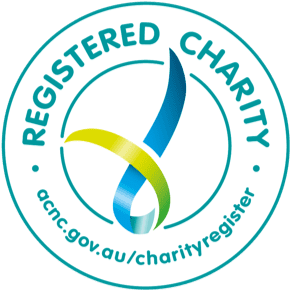An Introduction
What is Birth Trauma?
Each woman will have her birth experience dream, and then the reality. With many women who have experienced birth trauma, the disconnect between their ideal birth and the reality can make them feel broken and at fault and leave them in a vulnerable emotional state. Alongside psychological trauma, women may also have to manage physical injuries. We will help you understand the two types of birth trauma – physical and psychological. Each has a variety of signs and symptoms and the two can very much be intertwined, making their identification and management complex. With our guidance and support we hope you are able to recognise these signs and begin the journey with your loved one in the management and support you both require.
We have a series of downloadable guides and resources available.
Psychological Birth Trauma
Psychological trauma may be the result of an extreme disconnect between a woman’s expectations of what would happen and/or feelings of loss of control during her birth experience. This can be heightened as a result of physical damage. The shock of what actually happened can cause a number of psychological issues including mental health disorders, anxiety, and depression to name a few. It is important to note that some women may have severe emotional suffering after a traumatic birth, although they did not have physical birth injuries.
- Feelings of intense fear, helplessness or horror in reaction to the experience, for example, words, smells, rooms, clinicians, a particular hospital
- Fear and anxiety about going outside
- Poor self-image
- Memories (flashbacks) of the delivery during sexual relations.
- Trying to push feelings away and just getting on with looking after the baby
- Difficulty sleeping or nightmares
- Feelings of isolation, Irritability and guilt that may manifest as anxiety or panic attacks
- Avoiding reminders of the birth, such as the location where it happened or a tendency to become stressed or anxious when being close to the location of birth. Triggers like this can show up in different ways.
- Unemotional, numb or detached from others, activities, or surroundings
- Alcohol and drug misuse
- Distress caused by physical birth injuries that you may be managing.
- You may notice that your partner is having some difficultly bonding with baby.
- Sweating, shaking, headaches, dizziness, gastro intestinal upsets and chest pains not connected with medical conditions
- Continuing pain around the site of the episiotomy or tear in the perineum (between vagina and anus) after birth
- Urinary or faecal incontinence (not being able to hold your bowel movements)
- Difficulty opening and emptying bowels
- Pain or difficulty having sex
- Constant lower back pain
- Awareness of a bulge or lump at the vaginal opening
- A dragging/heavy feeling in the pelvis or a sense that something is ‘falling out’ – this symptom may be increased by standing, lifting, tiredness or at period time
- Vaginal or pelvic floor muscle laxity (looseness of a limb or muscle).

How can you help?
- A traumatic birth is not something you can plan for.
- Everyone heals differently, please give me the time I need
- I’m not the person that I used to be – the change is as daunting for me as it is you.
- Some days I can be completely emotionless and other days I am an emotional wreck
- Please acknowledge that I need to talk about what happened to me.
- There is more to birth than having a healthy baby.
- Trauma is real and the mother needs compassion, kindness and lots of care.
- When I say I am not coping, please acknowledge how unfair/daunting/overwhelming the situation is, and ask how you can help.
- When you respond with ‘you’re doing so well!’ Or ‘look at how well you’re coping’ you minimise my feelings. Please acknowledge how I feel.
- You may hear of someone having a similar experience to my own that wasn’t traumatised by it. That’s okay, we all process things differently. It does not mean that I shouldn’t feel the way I do.
- It’s not your fault
- Forgive yourself for not knowing what you didn’t know
Seeking Help
Health Professionals
There are many different health professionals who can assist and provide treatment in the management of birth trauma. It can be confusing to consider what type of doctor or specialist needs to be seen, who to speak to, and who specialises in what. You may find our guide on the types of health professionals associated with both types of birth trauma helpful. Above all, be patient – healing takes time, and working together will make this journey easier for all involved.
A Message to Partners
Birth partners can also experience trauma from childbirth, and are too often forgotten. Watching someone you love go through a painful birth experience can be extremely difficult. You may feel very confused because you do not understand the nature of your partners’ psychological trauma and/or physical injuries after the birth, or you may have feared for your partner and baby’s well being. It is very important that you take the time to understand your own experience. You may wish to make an appointment with your GP to get help and support. Unfortunately, postnatal depression and anxiety in men is not always diagnosed accurately. Affected couples should seek expert advice from mental health professionals.






